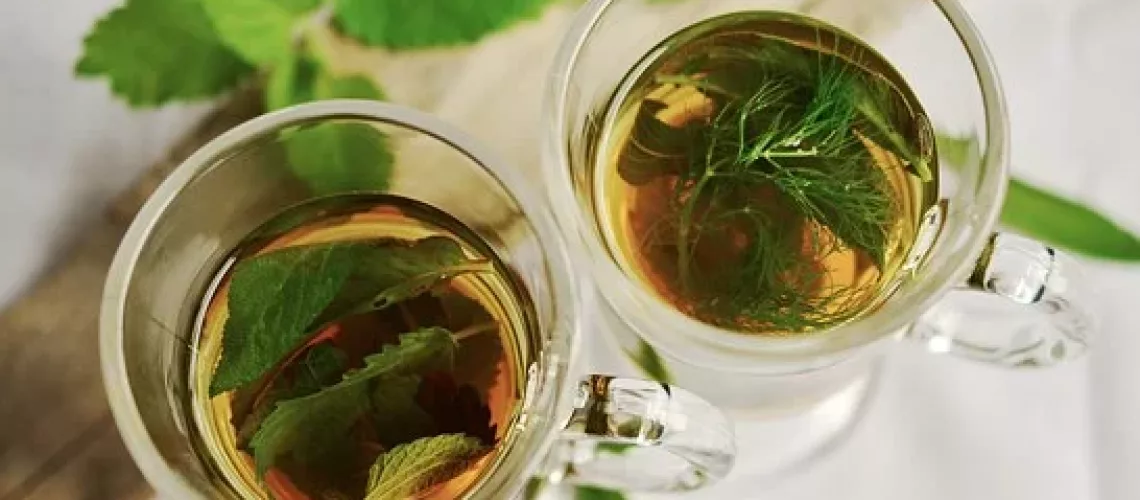Stress....Our Favorite "S" Word These Days
Have you ever wondered which herbal teas can actually calm your stress? For thousands of years, cultures around the world have turned to herbal teas for their therapeutic and medicinal effects. They’re a natural, gentle alternative to prescription drugs—and they taste good too. Maybe it’s time you joined the tradition.
Stress shows up everywhere—money problems, family obligations, looming deadlines, or the weight of today’s economy. It doesn’t discriminate; young or old, everyone feels it. Too often, we reach for a quick pharmaceutical fix, without considering the long-term toll on body and mind.
Of course, not all stress is bad. A little pressure can sharpen focus and boost performance. But when stress drags on, panic and burnout follow. Our bodies are designed to handle short bursts of tension, not endless waves of it. That’s where herbal teas step in. This ancient practice continues today because it works—blending herbs to ease the body, settle the mind, and restore balance.
So, the next time your mood swings are testing your partner’s patience—or you’re ready to tear your hair out—skip the pills and try a soothing herbal tea mix. Your sanity (and theirs) might thank you.
Catnip
Yes, you guessed it—it’s for cats! But here’s the twist: humans can enjoy it too. Often called the “anti-stress herb,” this plant has a long history of calming uneasiness and even soothing children after nightmares. In the past, it was used for far more extreme conditions—even insanity (though let’s hope your stress never gets that far!).
This herb works gently to relax the body and mind, making it especially useful for easing anxiety linked to nicotine or drug withdrawal. Plant a little in your garden, and you’ll have a natural stress reliever on hand. As a bonus, your feline friends will be just as grateful as you are.
Peppermint
This plant has long been considered a “cure-all” in England—and it even gets a mention in the Bible as one of the herbs used to pay taxes! Historically, it’s been used to ease hysteria (though hopefully your stress never reaches that point) and treat nervous disorders. It’s also effective for soothing stomach aches and cramps. Best of all, it’s easy to find—just grab some on your next trip to the supermarket.
Ginseng
Known as the “king of tonics,” this herb is often regarded as a “world wonder.” In Chinese medicine, it’s considered a powerful remedy for nearly every ailment. It effectively combats stress and, in the West, is used to address nervous exhaustion, mental fatigue, loss of appetite, and digestive issues.
Chamomile
Chamomile, often called the “all-around comforter,” is one of the best herbal teas for calming the mind and soothing frazzled nerves. Its natural antispasmodic properties help relax the body’s muscles, promoting both physical ease and emotional calm.
Thanks to its gentle effects, chamomile is often considered safe even for restless children. That said, it’s always wise to check with your doctor, midwife, or care provider before use, as recommendations can change over time.
Kava Kava
Kava Kava, often known as the “mood adjuster,” works by working on the nerve centers and stimulating them to ease anxiety, tension, and emotional stress. It’s also a gentle natural sedative that can provide a sense of calm without causing any loss of attention or changes in motor reflexes.
Valerian
Valerian, nicknamed “Phu” for its strong and unusual odor, contains compounds called valepotriates that give it natural sedative properties. Often called “nature’s tranquilizer,” it was even used during WWII to help civilians manage the stress of constant air raids. Today, valerian remains a popular herb for promoting restful sleep and calming the nerves.
Passionflower
Passionflower lowered anxiety during four weeks in one well-designed study; the herbal cure was just as efficient as a common anti-anxiety prescription. It is thought to be effective in treating agitation, irritability, depression, and opiate withdrawal. It’s available as tea or as liquid extract drops.
Lavender
In a recent study, lavender oil was found to relax people and regulate numerous symptoms similar to the prescription drug Ativan on patients with generalized anxiety symptoms. It is a non-sedating essential oil that can be inhaled or given as a crushed supplement in capsule form. Even having the lavender plant in your room promotes wellbeing as it’s aroma is beautiful and calming.
Ashwaganda
Ashwagandha is a powerful herbal supplement widely used to ease anxiety and support stress resilience. Research shows it can lower cortisol—the body’s primary stress hormone—and significantly reduce anxiety symptoms. Unlike many pharmaceuticals, it has no serious side effects and can be taken long term. In fact, one study even found it to be more effective than Ativan.
You can enjoy Ashwagandha as a tea, mix the powder into drinks, or take it in supplement form. Personally, I swear by the gummies—I take them daily, and they’re my go-to during stressful times.
Theanine
Both black and green tea contain L-theanine, a water-soluble amino acid available in tea or supplement form. Non-addictive and non-sedative, L-theanine helps calm the mind by acting directly on regions of the brain linked to stress and anxiety.
Unlike benzodiazepines, which are often prescribed for anxiety, herbal remedies work gently and naturally. They’ve been used for thousands of years with proven success, offering vitamins and compounds that support relaxation without harmful side effects.
Herbal teas provide a safe, simple way to promote daily calm and emotional balance. By incorporating them into your routine, you can ease anxiety symptoms naturally—without the risks of dependency or unwanted effects.
Note: However as always, before you attempt them, check with your doctor to make sure they won’t interact negatively with any other medications you’re taking or that there are no contraindications for your particular situation.They are, for the most part, free of adverse effects. However, it’s vital to keep in mind that herbs can interact with sedative medicines and other medicines, so proceed cautiously and see your doctor or a herbalist before beginning.

